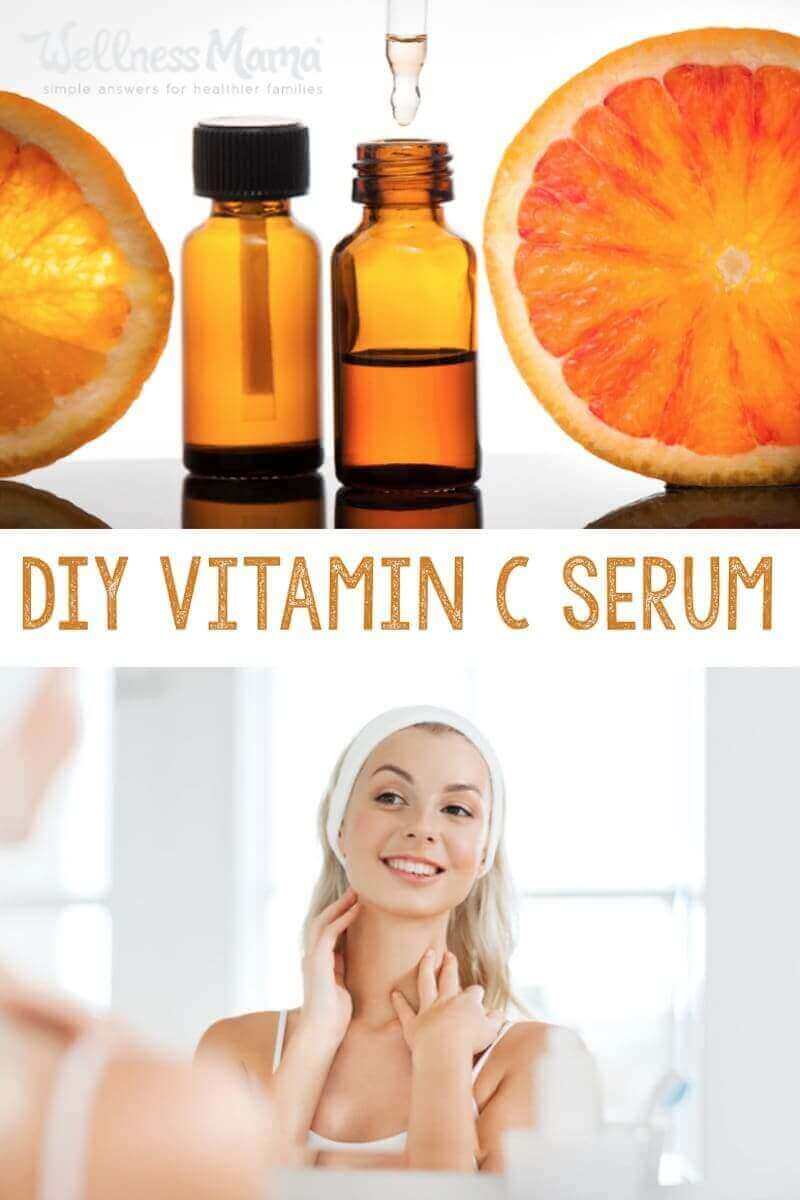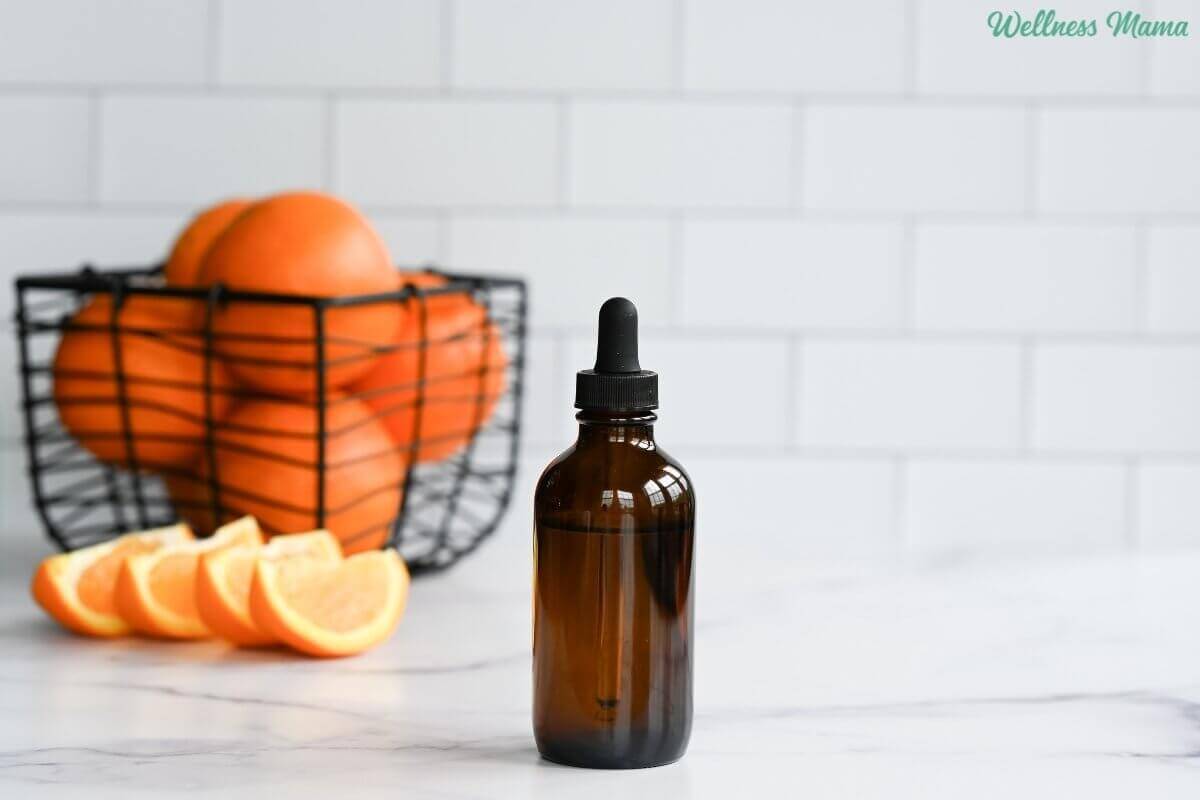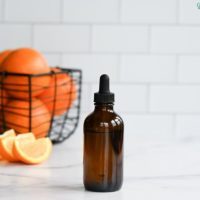Vitamin C serum is an anti-aging natural skincare ingredient often found in high-end beauty regimens. You can find this antioxidant in many moisturizers, lotions, and creams as well. Why all the fuss? And is it possible to make your own (much less expensive!) vitamin C serum at home?
I’ve researched, experimented, and tried it out and the answer is… yes you can!
Vitamin C Serum Benefits
Vitamin C is touted as an anti-aging and anti-wrinkle cream, and for good reason. Vitamin C is helpful for brightening and tightening skin. (This works if you take it internally too!).
Researchers found that regular use of vitamin C on the skin will:
- Increase collagen production in the skin, which fights wrinkles (I personally like to take gelatin and vitamin C internally too for this purpose)
- Brighten and tighten the skin
- Reduce the effects of negative sun exposure (Note: Not all sun exposure is bad)
- Mitigate some chlorine exposure
- Help skin repair and renew itself at a cellular level
While I love these benefits, many of these products also cost an arm and a leg. Thankfully, there is a natural, homemade and inexpensive alternative (noticing a trend here?) that seems to work just as well.
How to Make Your Own Vitamin C Serum
In just a few simple steps, you can make your own brightening facial serum.
First, you will need a few items:
- a dark-colored bottle with dropper (I love how these bottles look on the bathroom counter!)
- a quality vitamin C powder (linked below)
- filtered or distilled water
Next, just mix in the ratios below and store! Use as you would a facial toner. Note: Since it contains no preservatives, this serum will last about two weeks and needs to be stored in the fridge.
This serum works on most skin types, especially dry or aging skin. Customize your results based on your skin type by:
- If you have more oily skin or combination, consider trying this vitamin C toner with witch hazel instead.
- If you have acne-prone skin, try this sea spray for skin in addition to or instead of vitamin C serum.
Cautions & Tips
Here’s the best way to use vitamin C serum, from personal experience:
- Measure carefully and do not add extra vitamin C as it is acidic and can/will burn the skin if the concentration is too high. If you are dealing with a lot of wrinkles or very dry skin, extra vitamin C can be added, but work up slowly and test on the inner arm before applying it to the face.
- If you have extra sensitive skin, dilute with even more water.
- Alternatively, to make the vitamin c less irritating, you can add baking soda to make the serum more alkaline.
- This is best paired with a natural skincare routine like oil cleansing.
Vitamin C Serum Recipe
Materials
- ½ tsp vitamin C powder
- 1 TBSP distilled water (OR 1 tsp distilled water + 2 TBSP vegetable glycerine)
Instructions
- In a small, dark-colored container, combine the vitamin C powder and the water.
- If you are only using water and vitamin C, you are done. This will store for up to 2 weeks or longer in the fridge.
- If you are using glycerin, dissolve the vitamin C in 1 teaspoon of water, then stir in 2 tablespoons of glycerin and store. This version will last a month or longer.
Notes
This article was medically reviewed by Cynthia Thurlow, NP, the CEO and founder of the Everyday Wellness Project, nurse practitioner, international speaker, and globally recognized expert in intermittent fasting and nutritional health. As always, this is not personal medical advice and we recommend that you talk with your doctor.
Ever used a vitamin C serum on your skin? How did it work for you? Share below?




Leave a Reply